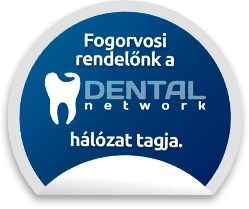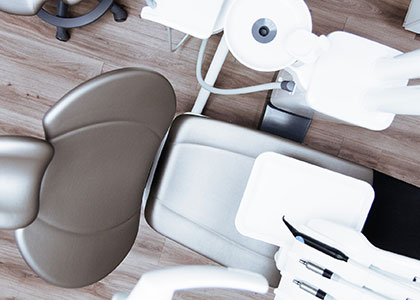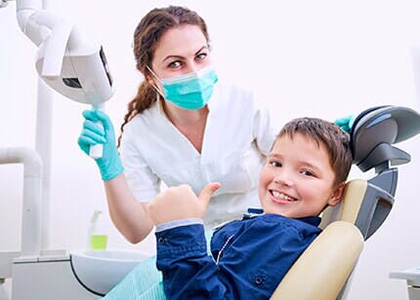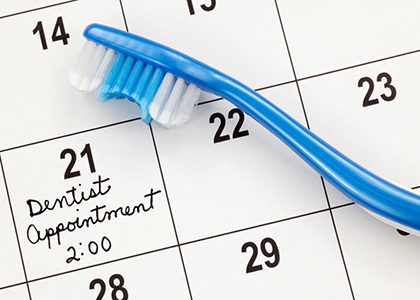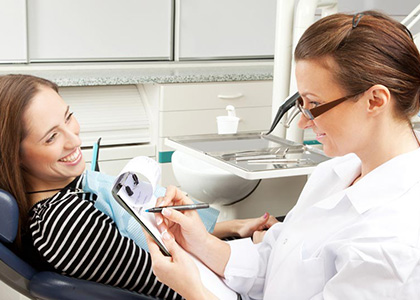Prenatal Dental Care: Ensuring Oral Health During Pregnancy
Prenatal dental care is a critical aspect of healthcare that expectant mothers should prioritize. Pregnancy is a unique time of hormonal and physical changes preparing the body for childbirth. These changes can significantly impact overall health, including oral hygiene and dental health. It's crucial for pregnant women to pay special attention to their oral health and participate in regular dental screenings during pregnancy.
The Impact of Hormonal Changes on Teeth and Gums During Pregnancy
Pregnancy is a challenging period where a woman's body undergoes significant changes, not only affecting the baby's development but also the mother's health, including oral health. The substantial increase in estrogen and progesterone levels during pregnancy can affect the teeth and gums in several ways, necessitating special attention from expectant mothers.
Hormonal Changes and Gum Sensitivity
The rise in estrogen and progesterone levels during pregnancy directly affects the gums. These hormones increase blood flow to the gums, making them more sensitive, swollen, and prone to bleeding, especially during brushing or flossing.
This condition, known as pregnancy gingivitis, typically occurs in the second or third trimester when hormone levels peak. Affected mothers may notice that their gums become more sensitive, swell, and bleed easily, even under slight irritation. These symptoms are not only uncomfortable but can also be precursors to more serious dental issues, making it vital for expectant mothers to not ignore them.
Pregnancy Gingivitis: Symptoms and Risks
Pregnancy gingivitis is not just an aesthetic issue but also poses serious risks. If untreated, the inflammation can spread to the periodontium, leading to periodontal disease, which can cause tooth loosening and loss.
Moreover, pregnancy gingivitis can endanger the fetus's health. Untreated gum inflammation can increase the levels of inflammatory mediators in the body, which can affect the placenta and the fetus. Studies have shown that severe gum inflammation in pregnant women increases the risk of premature birth and low birth weight.
Preventive Measures Against Pregnancy Gingivitis
The risk of developing pregnancy gingivitis can be reduced by maintaining proper oral hygiene. Here are some simple yet effective steps to help prevent or minimize the symptoms of gum inflammation:
Regular Brushing and Flossing: Brush your teeth at least twice a day with fluoride toothpaste and use floss to clean between your teeth. Pay special attention to the gum line, where plaque most commonly accumulates.
Use of Specialized Oral Care Products: During pregnancy, it may be beneficial to use mouthwashes and toothpastes specifically designed to prevent gingivitis. For example, products like Corsodyl can help reduce inflammation and prevent bacterial overgrowth.
Regular Dental Check-ups: It is recommended to visit a dentist at least twice during pregnancy to detect problems early and treat them if necessary. The dentist can also provide advice on establishing a proper oral care routine.
Healthy Diet: Proper nutrition also plays a crucial role in maintaining gum health. Consume plenty of vitamin C-rich fruits and vegetables, which help strengthen the gums and prevent inflammation.
Dealing with Toothache During Pregnancy
During pregnancy, the body undergoes numerous changes that affect overall health, including oral health and dental condition. One common issue that pregnant women may face is toothache, which can be not only uncomfortable but also cause significant concern. Many pregnant women fear that pain relievers or dental treatments could harm the baby. However, it is important to understand that untreated toothache and underlying issues can pose a greater risk to both the mother and the fetus.
Causes of Toothache During Pregnancy
Common causes of toothache during pregnancy include:
Gingivitis: Hormonal changes during pregnancy can make the gums more sensitive, leading to increased inflammation, bleeding, and pain. Pregnancy gingivitis is common and can lead to more serious problems if untreated.
Tooth Decay: Changed eating habits during pregnancy, especially consumption of high-sugar foods and beverages, can increase the risk of cavities. Decayed teeth often cause pain, which can worsen if not addressed.
Periodontal Disease: Untreated gingivitis can develop into periodontal disease, which not only leads to tooth loss but can also be risky for the fetus, as it has been linked to premature birth and low birth weight.
Dental Abscess: An abscess is a collection of pus that forms due to an infection, causing severe, throbbing pain. This condition requires immediate treatment as the infection can spread and pose serious health risks.
What to Do About Toothache During Pregnancy
If you experience a toothache during pregnancy, the first and most important step is to visit a dentist immediately. The expertise of a dentist is indispensable for identifying the precise cause of the problem and selecting appropriate treatment. It's crucial to emphasize that modern dental treatments, including X-rays, are much safer today than in the past and are generally safe during pregnancy when necessary precautions are taken.
Safe Medication Treatments Many pregnant women are concerned about using pain relievers, fearing that these drugs could harm the baby. However, medications recommended by a dentist, such as paracetamol, can be safely used during pregnancy when properly dosed. The dentist always considers the health of the mother and fetus when selecting the best treatment.
Dental X-rays During Pregnancy While dental X-rays are generally avoided during pregnancy, they are sometimes essential for accurate diagnosis. Modern dental X-rays emit minimal radiation, and when performed with proper protection (such as a lead apron), the risk is virtually negligible. Your dentist will weigh whether the X-ray is necessary and, if so, will conduct the examination in the safest possible manner.
Treatment Options The treatment plan recommended by your dentist will depend on the cause of the toothache. This may include:
Fillings or Root Canal: If tooth decay is causing the pain, filling the cavity or performing a root canal may resolve the issue.
Antibiotics: In cases of severe infection, such as an abscess, the dentist may prescribe antibiotics that are safe to use during pregnancy.
Gum Treatment: Treatment for gingivitis may involve removing tartar and cleaning the gums to eliminate inflammation-causing bacteria.
Home Care and Prevention To prevent toothache, it's important to maintain regular and thorough oral hygiene. Use a soft-bristled toothbrush to avoid irritating the gums and choose fluoride toothpaste to prevent decay. Regular use of dental floss can help remove food particles stuck between teeth, which can cause decay.
Additionally, limit your intake of sugary foods, which can increase the risk of cavities, and maintain a balanced diet rich in nutrients to support the health of your teeth and gums.
What Can and Cannot Be Done During the First Weeks of Pregnancy?
The first few weeks of pregnancy are among the most sensitive periods for fetal development. During this early stage, the baby's most critical organs are formed, and the mother's lifestyle, nutrition, and overall health have a direct impact on the baby's growth and development. Therefore, it is crucial for expectant mothers to prepare consciously for this period and avoid factors that could jeopardize the success of the pregnancy. Below, I detail what can and cannot be done during the first weeks of pregnancy.
What Can Be Done in the First Weeks of Pregnancy?
Healthy Eating: A balanced, nutrient-rich diet is extremely important for the baby's healthy development. In the first weeks, it is particularly important for expectant mothers to consume adequate amounts of folic acid, iron, calcium, and protein, as these substances are crucial for the baby's growth. For example, folic acid helps prevent neural tube defects, while iron supports blood formation for both the mother and the baby.
Taking Vitamins and Supplements: Taking prenatal vitamins recommended by a doctor during pregnancy helps ensure that the mother and baby receive the necessary nutrients. Taking progesterone supplements during pregnancy may also be justified in certain cases if hormone supplementation helps maintain the pregnancy.
Maintaining Oral Hygiene: Oral health can directly affect the outcome of the pregnancy, so regular brushing, flossing, and dental check-ups are critically important. Oral care products, such as Corsodyl during pregnancy, can help prevent or treat gingivitis, which can have serious consequences if not addressed in time.
Regular Exercise: Moderate exercise can help maintain the mother's fitness and well-being during pregnancy. Activities such as walking, yoga, or swimming not only support physical health but also help reduce stress.
Regular Medical Examinations: Regular gynecological check-ups during pregnancy help monitor the baby's development and the mother's health. Prenatal examinations in the first trimester are also essential, as they allow the doctor to assess the general health of the expectant mother and provide advice on diet and lifestyle if necessary.
What Should Not Be Done in the First Weeks of Pregnancy?
Smoking and Alcohol Consumption: Smoking and drinking alcohol are particularly dangerous in the first weeks as they can severely harm the baby's development. Smoking during pregnancy increases the risks of miscarriage, premature birth, and developmental disorders. Alcohol can lead to fetal alcohol syndrome, which can cause severe mental and physical impairments.
Exposure to Harmful Substances and Chemicals: It is particularly important to avoid exposure to toxic chemicals during the first weeks, which can harm the baby's developing organs. Such substances include cleaning agents, paints, pesticides, and certain beauty products. Avoid situations that might increase exposure to these chemicals.
Excessive Caffeine Consumption: While moderate caffeine intake is generally not a risk, it is advisable to reduce the consumption of coffee and other caffeine-containing drinks during the first weeks. Excessive caffeine intake can increase the risk of miscarriage, so it is recommended to limit coffee consumption to one or two cups per day.
Consumption of Difficult-to-Digest, Raw, or Improperly Prepared Foods: During pregnancy, the immune system may be weakened, increasing the risk of infections. Raw or improperly prepared meats, eggs, and seafood can contain bacteria such as Listeria or Salmonella, which can cause severe diseases and endanger the fetus.
Stressful Situations and Physical Exertion: It is particularly important to avoid stressful situations and excessive physical exertion in the first weeks. Stress hormones can affect the baby's development, while excessive physical strain – especially if you are not accustomed to it – can increase the risk of miscarriage. Avoid lifting heavy objects and overly intense workouts during the first trimester.
The Importance of Conscious Childbearing
Conscious childbearing is not only about ensuring the baby's health but also about the well-being of the mother. Mothers who neglect their own health are more likely to face complications that can endanger both their health and that of the baby. Therefore, conscious childbearing includes maintaining a proper diet, regular medical check-ups, and oral hygiene.
It is particularly important for expectant mothers to visit the dentist regularly in the first weeks, as untreated oral issues, such as inflamed teeth during pregnancy, can have serious consequences. Inflammation of the gums, periodontal diseases, and tooth decay can cause pain and discomfort and increase the risk of premature birth, placental abruption, and low birth weight.
To prevent such problems, use appropriate oral care products like Gingisol during pregnancy and avoid toothaches that could further worsen the condition. Additionally, regular dental check-ups help identify and treat problems before they lead to more serious issues.
Prenatal Screening at Fehérvári Dental
Are you pregnant? Don't forget that your oral hygiene is especially important during pregnancy! From the first trimester, hormonal changes can affect the health of your teeth and gums, increasing the risk of complications. At Fehérvári Dental, our prenatal screening ensures thorough examination of your teeth and gums, helping prevent common pregnancy-related issues like gingivitis or tooth decay. Book an appointment today to secure your and your baby's health during pregnancy and beyond! Don't wait any longer, click now to book and embark on the path of conscious childbearing!
Book your appointment now!
